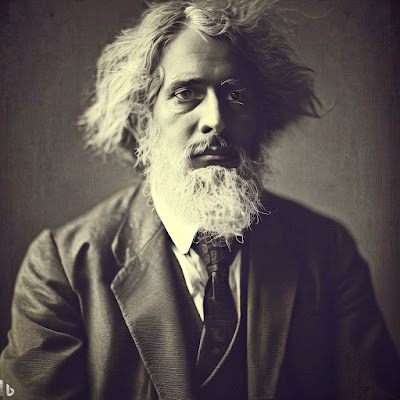Quimby's theory held that mental states had profound effects on physical health, which contradicted largely accepted views of orthodox medical science at the time.
The early 19th century saw a new wave of thought led by Phillips Brooks and Transcendentalism, an exploration of the metaphysical aspects of life and understanding of divine truths. This opened the door for one particular philosopher and healer, Phineas Parkhurst Quimby, to introduce some radical concepts.
He developed a belief that negative thinking created diseases while positive thinking could create health. Although met with criticism in his lifetime, his influence has been felt throughout history; most notably in the various branches of mind-body medicine - such as Christian Science and New Thought - which are prevalent to this day.
Christian Science is a religious movement that was founded in the late 19th century by Mary Baker Eddy, who was influenced by Quimby's ideas on the relationship between the mind and the body. According to Christian Science, illness and disease are not caused by physical factors but are instead the result of negative thinking and a lack of faith in God. By developing a strong connection to God and focusing on positive thoughts and beliefs, individuals can overcome illness and achieve optimal health.
New Thought, which emerged in the late 19th century, is a philosophical movement that emphasizes the power of the mind to create reality. Like Christian Science, New Thought teaches that illness and disease are the results of negative thinking and that positive thinking can promote health and well-being. New Thought has influenced many areas of modern spirituality and self-help, including the development of the Law of Attraction and other techniques for manifesting positive outcomes in life.
Quimby's theory held that mental states had profound effects on physical health, which contradicted largely accepted views of orthodox medical science at the time. He argued that if people could control their thoughts they could control physical ailments and even cure them. In essence, he proposed a mind-over-matter outlook that was far ahead of its time. His ideas have become part and parcel of many variants of modern alternative healing methods.
In addition to what is now called mind-body medicine Quimby also brought forth an interesting concept called 'Mesmerism'. This related somewhat to hypnosis or trance-states but encompassed a much wider subject matter including psychology, philosophy, and spiritualism. It too is still practiced today under the title of 'energy healing'.
Although Quimby's ideas were not always widely accepted in his time, they have had a lasting impact on many fields, including mind-body medicine, psychology, and spiritualism. Quimby's work on Mesmerism, in particular, has influenced the development of energy-healing practices that are still used today.
Energy healing, also known as energy medicine, is a form of alternative therapy that involves the manipulation of energy fields in and around the body to promote healing and balance. This can be achieved through a variety of techniques, including Reiki, acupuncture, and Qigong, among others.
The underlying principle behind energy healing is that the body's energy fields, or "aura," can become imbalanced or disrupted due to stress, illness, or other factors. By restoring balance to these energy fields, energy healers believe that they can promote physical, mental, and spiritual healing.
While energy healing has not been widely accepted by the medical community, many individuals have reported positive experiences with these practices. Some studies have also suggested that energy healing may have a beneficial effect on certain health conditions, such as pain, anxiety, and depression.
It's fair to say that Quimby was a man who thought outside the box and managed to challenge commonly held beliefs within scientific circles without harsh rebuke or persecution from his peers; something extraordinary for his era given prevailing attitudes towards original mindsets like his own in those times. Despite initially being met with cynicism it is clear that Phineas Quimby has left an enduring legacy that will no doubt continue to be appreciated well into the future.

No comments:
Post a Comment
Note: Only a member of this blog may post a comment.